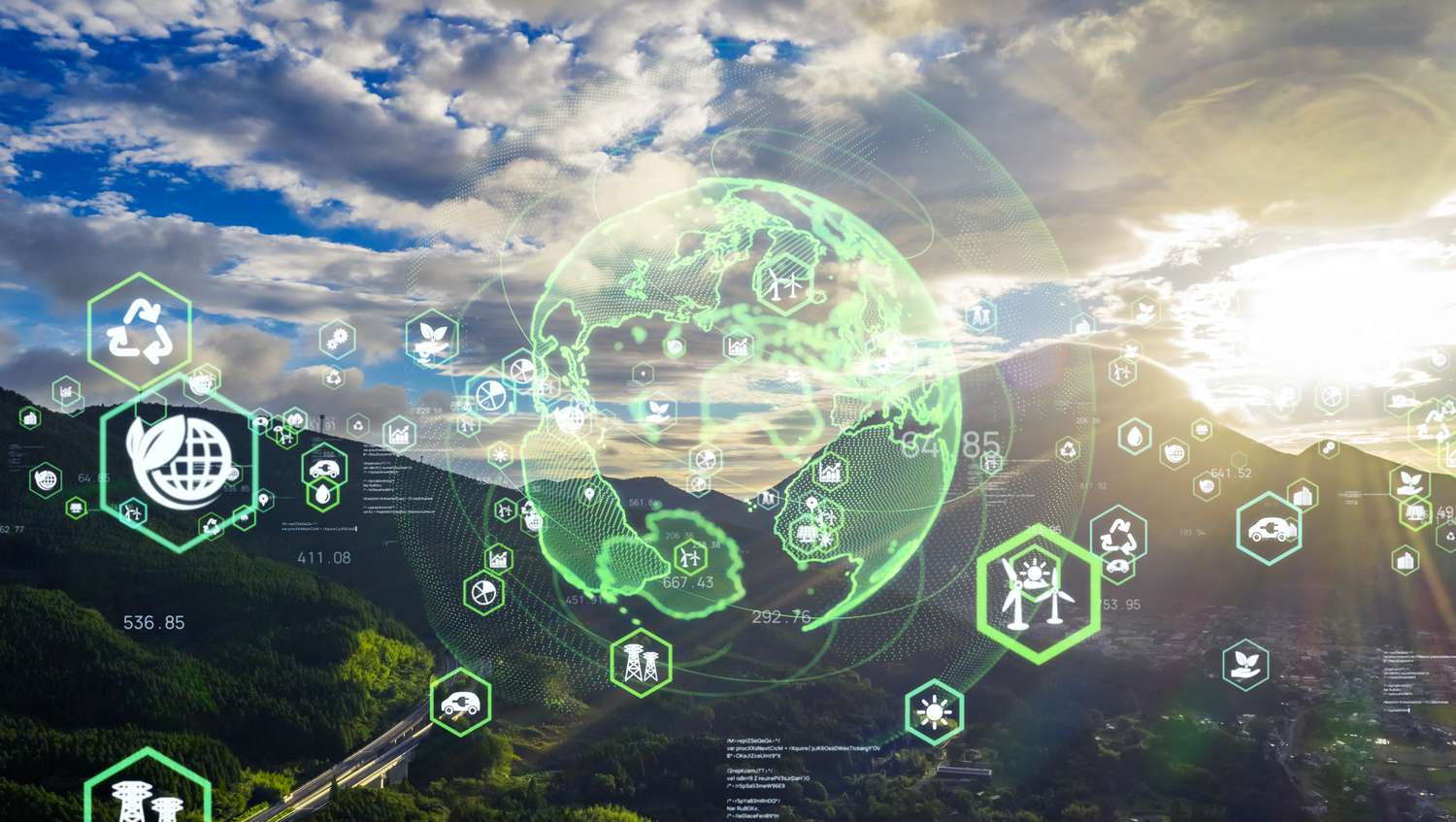
Sustainability software is a powerful tool for businesses and organizations that are looking to become more sustainable and reduce their carbon footprint. This type of software collects data on energy usage, waste disposal, water consumption, and other environmental factors in order to measure the sustainability performance of an organization or business.
It can provide detailed reports showing which areas need improvement as well as suggest ways to reduce emissions and optimize resource use. By collecting this data, companies can set goals and reach them with greater accuracy and efficiency than ever before.
With sustainability programs, organizations have the power to make a real difference in the world around them while also saving money in the long run by reducing their energy costs. In short, it’s a win-win proposition for everyone involved.
Sustainability software is an important tool in the fight against climate change. By taking a more holistic view of sustainability, companies can make decisions that will benefit everyone – from individuals to corporations, and even entire nations.
The data provided by these solutions helps organizations and businesses understand where they stand with regards to their ESG goals and objectives, while also providing them with the tools they need to achieve their desired results. With the right software in place, organizations are well on their way towards making sustainable progress for years to come.
What is Sustainability Software?
Sustainability software is a type of technology that helps organizations reduce their environmental footprint. It provides tools and resources for companies to track, monitor, and improve the sustainability performance of their operations. By utilizing data-driven insights, businesses can make informed decisions about how to reduce waste, increase energy efficiency, and ultimately create a sustainable future.
Sustainability software also helps organizations stay in compliance with regulatory bodies by providing visibility into their current eco-friendly initiatives. With this kind of software available, it’s never been easier for businesses to make meaningful changes toward creating a more sustainable world.
10 sustainability management software providers to consider:
-
IBM
-
Metrio
-
Microsoft
-
FigBytes
-
Ecometrica
-
Benchmark Digital Partners
-
Diligent ESG
-
OneTrust
-
Persefoni
-
SAP
Sustainability and ESG Data & Reporting
Sustainability data and ESG (Environmental, Social, and Governance) data are an increasingly important part of corporate responsibility. Companies are now under pressure to demonstrate their commitment to upholding the highest standards of ethical conduct in all of their operations. As a result, sustainability reporting and ESG reporting have become key components of effective corporate governance.
Companies must be able to clearly articulate the steps they are taking to reduce their environmental impact, address issues related to employee welfare, or improve governance structures. By doing so, companies can help ensure that stakeholders have faith in their commitment to responsible business practices and set themselves up for long-term success, especially with ESG and sustainability reporting.
Not only does this type of reporting help ensure that a company is adhering to best practices but it also helps them stand out in the market and attract more customers. In today’s globalized economy, businesses must prioritize sustainability reporting and ESG reporting if they want to thrive in an ever-changing landscape. These should act as your company’s reporting solutions which will generate reports that drive data reliability and sustainability goals.
Key features in sustainability management software
Sustainability management software is designed to help businesses and organizations track, measure, and manage their sustainability efforts. The key features in this type of software include data collection capabilities, reporting metrics tools, visualization dashboards, risk analysis tools, and integration with other systems.
Data collection allows organizations to collate information from numerous sources including internal business operations, external environmental sources, and more. Reporting metrics provide insights into the organization’s sustainability performance and how it can be improved.
Visualization dashboards allow users to easily comprehend complex data in an interactive format. Risk analysis tools offer more sophisticated insights into potential risks associated with a business or organization.
Lastly, integration with other systems allows for seamless integration of various data sources and a unified view of sustainability performance. With all these features, organizations can better understand the impacts of their sustainability initiatives and how to improve them.
Benefits From Professional Sustainability Management Solutions
Leading sustainability software providers can help businesses achieve their environmental and social objectives, as well as reduce costs. These solutions provide businesses with tools to improve their efficiency and reduce energy consumption, thus reducing their carbon emissions and overall carbon footprint.
Additionally, by understanding the impacts of their operations and taking appropriate action, businesses are able to increase the value of their products or services more sustainably. Furthermore, sustainability management solutions can help businesses with their public relations, as they demonstrate a commitment to social responsibility.
With Metrio sustainability reporting software, you can easily collect, analyze, disclose, report and communicate your ESG data. Our software enables organizations to compare and save data in a centralized platform, enabling better decision-making and improved corporate sustainability performance.
Finally, by understanding the current and potential impacts of their operations, businesses can create positive relationships with stakeholders by implementing responsible strategies for long-term sustainability which ultimately empowers organizations.
Sustainability Progress – The Need is High, But Progress is Slow
Sustainability Progress is an integral part of achieving a more sustainable global future. It involves making changes to our lifestyles, businesses, and communities that promote environmental responsibility and long-term economic growth.
Through setting and monitoring progress goals with specific targets, companies can track their own performance while demonstrating commitment to corporate sustainability objectives. Stakeholders are able to assess and evaluate a company’s commitments to sustainability, enabling better decision-making and improved corporate transparency.
Net-Zero Emissions Targets are a Top Priority
Net-Zero Emissions is an important concept in the global effort to reduce greenhouse gas emissions and prevent further climate change. This goal seeks to achieve a balance between releasing carbon into the atmosphere and removing it from the atmosphere by using strategies such as renewable energy production, carbon accounting, energy efficiency measures, and carbon capture and storage technologies. This can help campnys measure and manage their portfolio exposure to climate risks and financed emissions as they navigate the risks and opportunities in the net-zero transition.
The ultimate aim is for society to reach a point where the level of greenhouse gas emissions released is equal to the amount that is taken out, thus creating a cycle of zero net emissions. Emissions management software can help achieve this goal.

Tackle your Scope 3 Challenge
As with any challenge, the first step to success is understanding the problem. When it comes to tackling Scope 3 emissions, this means gaining an in-depth knowledge of your business’s sources of emissions and the different strategies you can use for reducing them. Once you have a clear picture of what needs to be done, you can start mapping out your Scope 3 emissions reduction plan, taking into account all of the relevant stakeholders and resources.
Ultimately, as part of a good sustainability strategy, you’ll need to develop a comprehensive action plan for reducing emissions, based on the best practices for energy efficiency and low-carbon operations. Setting targets and timelines will help you stay focused and motivated towards achieving your goals.
Finally, consider how you can collaborate with other companies in order to share expertise and resources, which will make it easier to reduce emissions across your entire supply chain. With careful planning and commitment, you can make strides towards meeting your Scope 3 emission reduction objectives.
Are you ready to start your Corporate Sustainability journey?
Our team of experts can help you with whatever compliance issues you may be facing. Whether it is understanding the complexities of a given regulation or recognizing where your company needs to improve, we have the necessary skills and experience to provide assistance. We will take the time to understand your unique needs and develop tailored solutions that address those needs. For facilites looking for help navigating the often perplexing regulatory landscape, contact us today!
Need Assistance?
Does this new change pertain to your company? Our team can help you figure it out and can help with other air compliance issues.